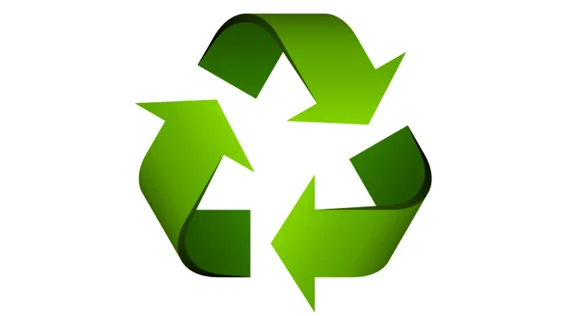
SEATTLE (Waste Advantage): A little bite of waste multiplied by a whole lot of people, really adds up. At an average rate, Americans use 1.6 straws a day, or 584 a year, according to the National Parks Service. Nationwide, that’s 500 million drinking straws thrown away every day — enough straws to fill about 46,400 school buses each year.
Environmental groups have targeted disposable drinking straws — that are not recyclable or compostable — for extinction. The ultimate goal: Prevent non-degradable plastic straws from polluting our beaches, waterways and oceans.
With so many other pollution problems, why straws? “Straws are an easy thing for everybody to get started on when approaching the enormous issue of plastic pollution,” said Diana Lofflin, founder of StrawFree.org, an environmental group based in southern California.
Lofflin said she realized something had to be done after seeing the video of a Costa Rican team removing a straw from a turtle’s nose. “We’re seeing more plastic in our waterways and one of the most common items we find is straws,” she said. “In fact, it’s one of the top 10 items that are picked up at beach cleanups. It’s estimated that by the year 2050, there will be more plastic in the oceans than fish.”
A GROWING MOVEMENT
Lawmakers in Los Angeles, Davis, Malibu and San Luis Obispo, Calif.; Miami Beach and Fort Myers Beach, Fla.; and Seattle, have passed ordinances that limit or prohibit restaurants from using plastic straws.
A ban on plastic straws for commercial use took effect in Fort Myers Beach in February. The town’s environmental specialists, who patrol the beaches, report seeing fewer straws in the sand, and most of the ones they do find are biodegradable, Town Manager Roger Hernstadt told NBC News BETTER.
The ordinance does create penalties: $100 for a first offense, $500 for three or more citations within a year, but Hernstadt hopes education and warnings will be all that’s needed.
“I think all the folks here understand that an attractive beach is important for them being able to draw customers, and this effort is part of making it desirable for people to come here,” he said.
Malibu already bans the commercial use of plastic shopping bags and polystyrene food containers. A new city ordinance takes effect in June that adds plastic straws, stirrers and cutlery to the list.
“I think this was driven by the fact that these plastic items don’t biodegrade,” said Malibu Mayor Rick Mullen. “They may break down in size, but the actual plastic stays in the ecosystem and people are getting conscious about that all over the world.”
Most restaurant owners support the ban, Mayor Mullen said, although some worry it will drive up their cost of doing business.
“Most people here in Malibu are not fanatical environmentalists by any stretch of the imagination,” but it’s part of the city’s mission to “preserve the natural beauty and take care of the environment as much as possible,” Mullen said. “We realize that the little things we do have a big effect on the natural world.”
Assemblyman Ian Calderon (D-Whittier), majority leader of the California legislature, has introduced a bill that would require all restaurants in the state that serve food eaten on site to provide plastic straws only when requested by the customer.
Calderon insists his bill, AB-1884, is not a ban on plastic straws. “It is a small step towards curbing our reliance on these convenience products, which will hopefully contribute to a change in consumer attitudes and usage,” he said in a statement.
Courtesy: https://wasteadvantage.com
| Copper Scrap View All | |
| Alternator | 0.31 (0) |
| #1 Copper Bare Bright | 3.70 (0.05) |
| Aluminum Scrap View All | |
| 356 Aluminum Wheels (Clean) | 0.71 (0) |
| 6061 Extrusions | 0.62 (0) |
| Steel Scrap View All | |
| #1 Bundle | 475.00 (0) |
| #1 Busheling | 495.00 (0) |
| Electronics Scrap View All | |